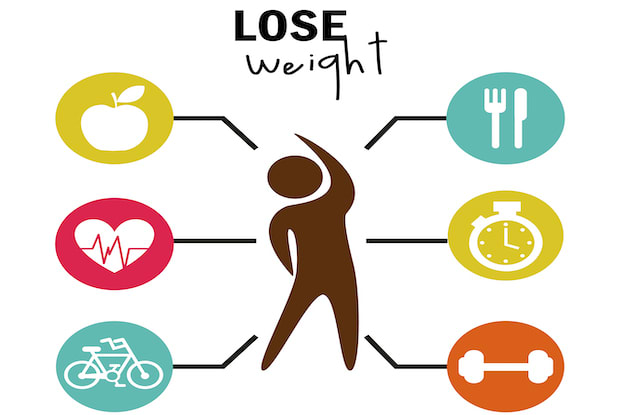Liraglutide vs. Semaglutide: Which Weight Loss Injection is Better?
Liraglutide vs. Semaglutide: Which Weight Loss Injection is Better?
Table of Contents
IV. Cost, Coverage, and Convenience
V. Explore Your Best Option With ScriptsMD
Injectable weight loss treatments like liraglutide and semaglutide have become popular tools for managing obesity and certain health conditions. These drugs belong to a group called GLP-1 receptor agonists. They help control hunger and blood sugar by acting on signals in the gut and brain. As more people explore these options, it’s natural to wonder: which one yields better results?
At first glance, liraglutide (Saxenda) and semaglutide (Wegovy) might seem alike. However, they have important differences in terms of frequency, effectiveness, and cost. Knowing how they compare can help you choose the one that fits best.
This article explains how each medication works, what kind of weight loss you can expect, and what side effects might occur. It also explores factors like cost and convenience to help you make a confident, informed decision alongside your healthcare provider
Quick Takeaways
- Liraglutide and semaglutide are GLP-1 medications used for weight loss
- Semaglutide is generally more effective for weight reduction
- Liraglutide is taken daily, while semaglutide is taken once weekly
- Side effects are similar but may vary in severity
- Cost, insurance coverage, and personal health factors can influence the best choice
- Talk to a provider before switching or starting either medication
How They Work
Liraglutide: Daily Support with Steady Impact
Liraglutide is a medication that acts like a hormone your body naturally produces to help manage hunger and blood sugar levels. It's given once a day as an injection and is known by the brand name Saxenda. This medicine works by slowing the rate at which food leaves your stomach, which can make you feel full for longer and help you eat less overall.
One reason people choose liraglutide is its daily dosing regimen. Some people find it easier to stay on track with a daily routine. Others may feel it’s a bit much to manage over time. The daily schedule allows your doctor to adjust your dose gradually, based on how your body responds.
Semaglutide: Weekly Dosing with Stronger Appetite Control
Semaglutide works similarly to liraglutide but tends to be more potent and remains active in the body for a longer period. Semaglutide is administered once a week. This longer-lasting effect helps people feel less hungry for longer periods, which can support more noticeable weight loss in some users.
A big advantage of semaglutide is the weekly injection schedule. Many people prefer it because it’s easier to remember and fits better into busy routines. While some may still experience side effects initially, the convenience and strong appetite control make it a popular choice for long-term use.
The Role of GLP-1 in Weight Management
These medications work by targeting the GLP-1 receptor, a part of the body that helps control hunger signals in the brain. By activating this system, they can reduce appetite and help people feel full sooner during meals. They also support healthy blood sugar levels, which is particularly beneficial for individuals with type 2 diabetes.
Although both drugs work similarly, semaglutide connects more strongly to the GLP-1 receptor and stays in the body longer. This may be one reason why it often leads to greater weight loss in studies. The stronger connection helps keep hunger under control for longer periods, making it easier to stick with a healthier eating routine.

Effectiveness and Results
How Much Weight Can You Lose?
Studies have shown that semaglutide often leads to greater weight loss compared to liraglutide. The strong results with semaglutide have made it a common first choice among doctors.
- Semaglutide is typically administered once a week, making it easier for some individuals to adhere to the treatment regimen.
- Liraglutide may be preferred for those who want more flexibility with daily dosing.
Still, not everyone responds the same way. Some individuals find that liraglutide works better for their body, especially if they don’t tolerate semaglutide’s side effects well. What works best depends on your health history and how your body reacts to the medicine.
Other Health Benefits
Beyond the scale, both injections offer added benefits. They can improve blood sugar levels, lower blood pressure, and reduce cardiovascular risk. Semaglutide has more data backing these outcomes, especially in people with type 2 diabetes. Liraglutide also supports metabolic health, but its effects may be less dramatic in comparison.
Additionally, patients often report feeling more in control of their hunger and eating habits while taking either medication, which can contribute to long-term lifestyle changes.
Side Effects and Safety
Common Side Effects to Expect
Most people experience similar side effects from both medications. These often include:
- Nausea
- Diarrhea
- Constipation
- Headache
- Fatigue
Symptoms are typically mild and tend to improve over time. Starting at a low dose and gradually increasing helps reduce discomfort. However, semaglutide’s stronger effects may cause more intense symptoms for some users in the early weeks.
Who Should Avoid These Medications?
Both drugs carry warnings for people with certain conditions. Neither should be used if you have a history of medullary thyroid cancer or multiple endocrine neoplasia syndrome type 2. Individuals with pancreatitis or severe gastrointestinal diseases should also exercise caution.
Here’s a simple checklist to help identify possible concerns:
- Do you have a personal or family history of thyroid cancer?
- Have you experienced pancreatitis before?
- Are you taking insulin or other diabetes meds?
- Do you have significant gastrointestinal issues?
Discussing your full health history with your provider is essential before starting either drug.

Cost, Coverage, and Convenience
Comparing Out-of-Pocket Costs
When choosing between liraglutide and semaglutide, price often plays a big role. Both drugs are expensive without insurance, and semaglutide usually costs more. Some patients are willing to pay the higher amount because of the added weight loss benefits and weekly dosing. Since insurance coverage can be different for everyone, it’s important to check with your pharmacy or health plan before filling a prescription.
If cost is a concern, don’t overlook patient savings programs. Some drug companies offer coupons or assistance options, especially if you're taking the medication for weight loss instead of diabetes. These discounts could make either option more affordable.
Lifestyle and Dosing Considerations
How often you take your injection can make a difference in how easy it is to stick with your treatment. Some people like the structure of daily injections and feel more connected to their progress with regular use. Others may find that a daily schedule becomes tiring or difficult to maintain over time.
Weekly injections, such as those with semaglutide, appeal to individuals who prefer less day-to-day responsibility. It’s easier to fit into a busy life and may feel less stressful to manage.
Ultimately, your decision should align with your habits and daily routine. What works for someone else might not be the best fit for you. Consistency plays a big role in success, so choosing a plan you can follow comfortably is just as important as the medication itself.
Explore Your Best Option With ScriptsMD
Liraglutide and semaglutide are both effective options for individuals seeking to lose weight. While semaglutide often yields better results, liraglutide may be more effective for some individuals, depending on their body's response. People also consider which one is easier to take, how much it costs, and how their insurance plan covers it.
Choosing between the two isn’t just about numbers or reviews. Your health history, lifestyle, and how you feel on the medication all matter. Before starting or switching, it’s a good idea to consult with a healthcare provider who can help you determine what option best suits your needs.
For more support navigating your insurance benefits for weight loss treatments, contact ScriptsMD today.
